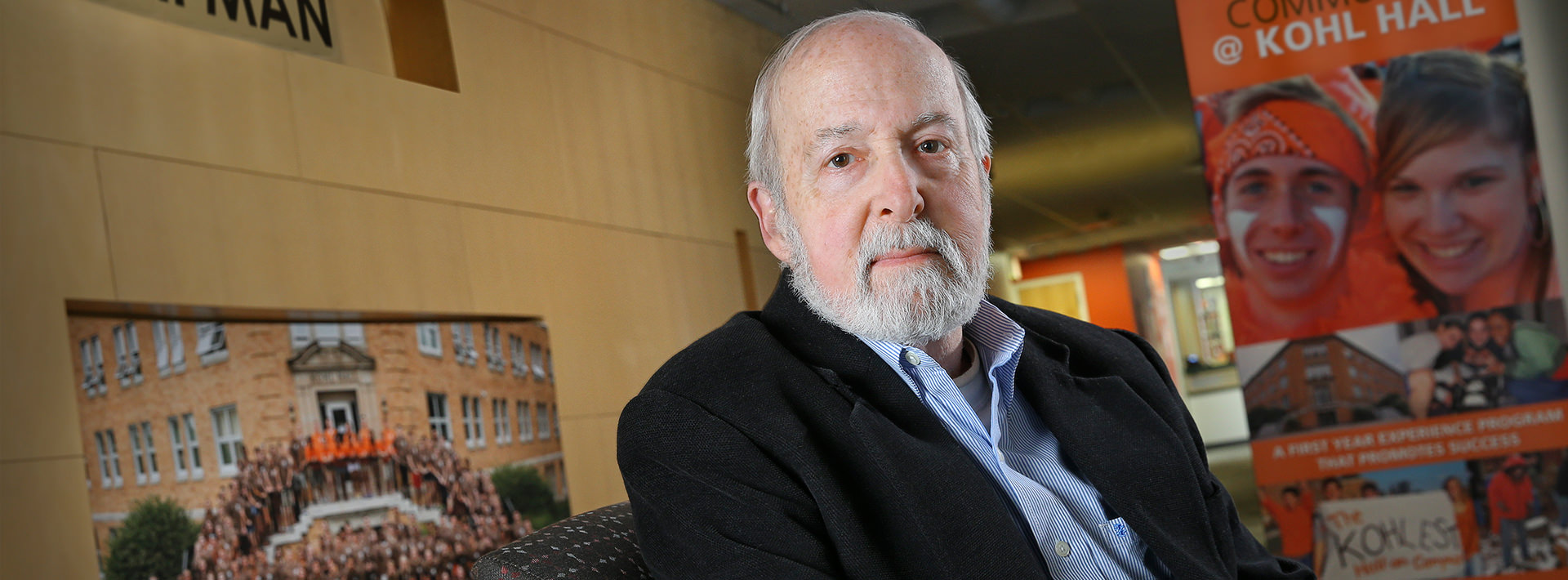Commitment to Community
Founder looks to the future with generous gift
 Chapman Learning Community was the first of BGSU’s initial learning community model which grew across campus and earned the University recognition in U.S. News eges” for eight consecutive years. A generous gift from one of the co-founders of Chapman Learning Community, Dr. Tom Klein, and his wife Dianne, will ensure that innovative teaching and learning continues to shape the BGSU community.
Chapman Learning Community was the first of BGSU’s initial learning community model which grew across campus and earned the University recognition in U.S. News eges” for eight consecutive years. A generous gift from one of the co-founders of Chapman Learning Community, Dr. Tom Klein, and his wife Dianne, will ensure that innovative teaching and learning continues to shape the BGSU community.
It put BGSU at the forefront of an emerging trend in higher education and brought the University national recognition, but 15 years ago it was just an idea – enhancing learning by bringing students with similar interests together under one roof in “learning communities.”
Dr. Thomas Klein, then serving as a professor in BGSU’s Department of English, saw residential learning communities as a key component to acting on former President Sidney A. Ribeau’s goal to make BGSU “the premier learning community in Ohio and one of the best in the country.”
Klein recruited fellow faculty members who were known as Master Teachers to develop the University’s first learning community, the Chapman Learning Community. Klein, Dr. Jack Nachbar, Professor Emeritus of Popular Culture, and Dr. Robert Midden, then an associate professor in the Department of Chemistry, are credited as the co-founders of the Chapman Learning Community. The original goal was to enroll 200 students who would live and study together in BGSU’s first formal living-learning community. The success of the initial learning community model grew across campus and earned the University recognition in U.S. News & World Report’s “Americas Best Colleges” for eight consecutive years. Now, BGSU students can choose from 10 residential learning communities and five theme communities across campus.
Klein was driven by what he and other thought leaders in higher education called “the fragmented and over-specialized nature of higher education.”
“Learning communities allow universities to reconnect the loose parts of education and are key to restoring learning to its essential wholeness,” said Klein. “The evidence for student success within learning communities is indisputable – increased levels of retention, higher grade point averages, and improved student satisfaction. However, the real value is manifested as students break down traditional academic boundaries between disciplines, between faculty and students, and between academic and student affairs.”
Klein retired in 2004, but his commitment to BGSU’s residential learning communities has been unwavering. To ensure the learning community model continues to bring innovative teaching and learning methods to BGSU, Klein and his wife Dianne have made a substantial gift to be given every year during a 10 year period.
“Ongoing attention to building our learning communities is essential to preparing students for futures where collaboration, critical thinking and interdisciplinary efforts are increasingly important,” said Klein. “Only by building educational practices that reflect and enforce these values can we say we have done our jobs as teachers.”
Updated: 12/02/2017 12:41AM
